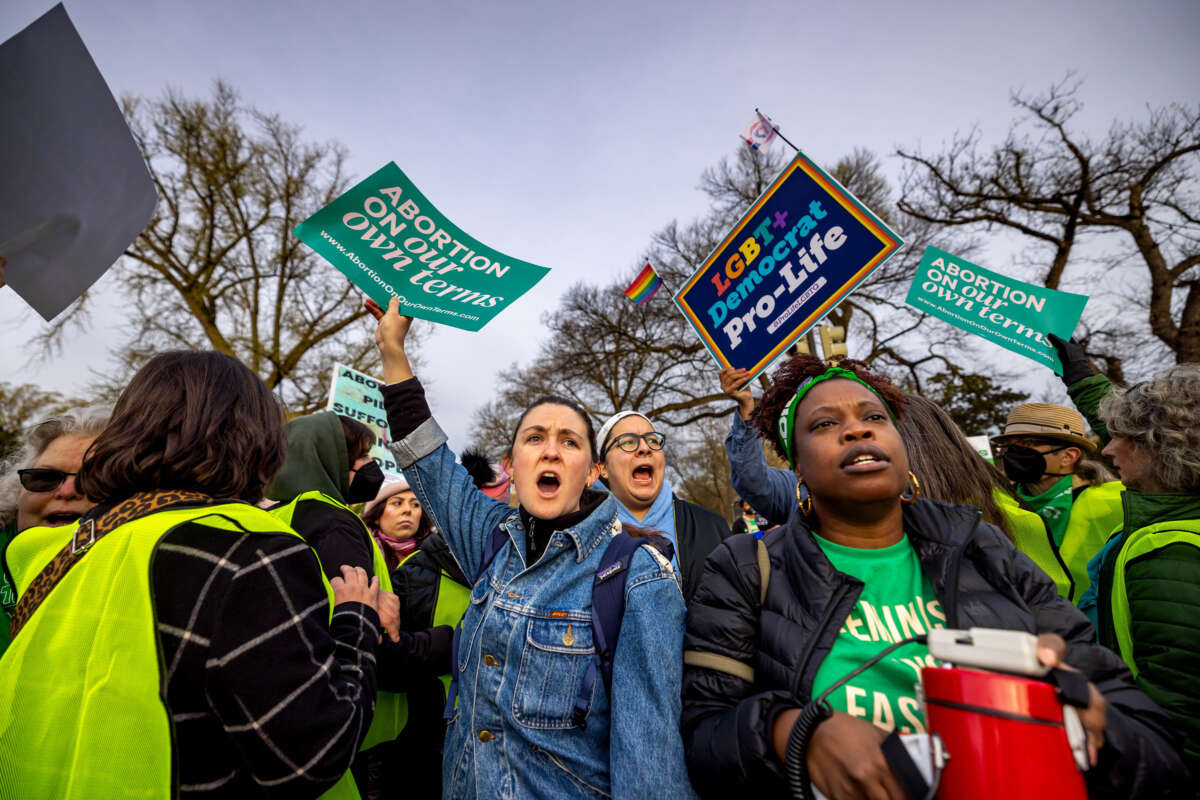A recent study by the Society of Family Planning revealed that approximately 8,000 women per month receive abortion pills via mail in states where abortion is heavily restricted. The report is the first of its kind to fully document the impact of providers leveraging blue state shield laws to offer telehealth abortions.
However, despite the implementation of shield laws in numerous states that safeguard providers who prescribe abortion pills from criminalization, the Supreme Court is poised to threaten the accessibility of abortion pills for women residing in states where abortion is prohibited.
“Access to medication abortion through telehealth continues to play an ever-increasing role in abortion care nationwide — even as the Supreme Court weighs the fate of telehealth abortion care,” Ushma Upadhyay, a professor at the University of California, San Francisco, told The Hill.
On March 26, 2024, the Supreme Court heard oral arguments in Alliance for Hippocratic Medicine v. FDA, a case which could endanger people’s access to the abortion pill mifepristone. While the Supreme Court has allowed mifepristone to remain on the market while the case moves through the courts, the Court could uphold a 5th Circuit holding that reimposed pre-2016 limitations on the medication by the Food and Drug Administration (FDA), such as prohibiting its prescription via telemedicine and dispensation via mail. This would have a detrimental effect on abortion access, as research shows that the abortion pill is currently used in more than half of all abortions.
“If the Court affirms [the Fifth Circuit Court’s ruling], the upshot will be harm all around: harm to women, particularly rural and low-income women, who will be required to visit in-person clinics simply to take a prescription medication, or may not be able to access mifepristone for abortion or miscarriage management at all,” the Reproductive Freedom Alliance, a coalition of 22 governors who support protecting abortion rights, said in a brief to the Court.
If the Court allows the prohibition of the abortion pill’s prescription via telemedicine and dispensation via mail, Black women in states with abortion bans would be disproportionately affected. Research shows that Black people seek abortion care more frequently, face reduced access to family planning services, and suffer from inferior health, education, and economic outcomes as a consequence. In fact, a recent report by the National Partnership for Women & Families and In Our Own Voice found that 57 percent of Black women of reproductive age, or 7 million, reside in states with existing or proposed abortion restrictions.
Some states are even considering bills that would criminalize possessing the abortion pill, such as Louisiana. This bill would classify mifepristone as a controlled substance and make it a crime for anyone who doesn’t have a prescription or is a licensed provider to possess the abortion pill. This bill not only increases the likelihood of Black women facing pregnancy criminalization but also could worsen the ongoing “medical ethics crisis” in Louisiana due to its stringent abortion ban, which disproportionately impacts Black women.
Press freedom is under attack
As Trump cracks down on political speech, independent media is increasingly necessary.
Truthout produces reporting you won’t see in the mainstream: journalism from the frontlines of global conflict, interviews with grassroots movement leaders, high-quality legal analysis and more.
Our work is possible thanks to reader support. Help Truthout catalyze change and social justice — make a tax-deductible monthly or one-time donation today.
